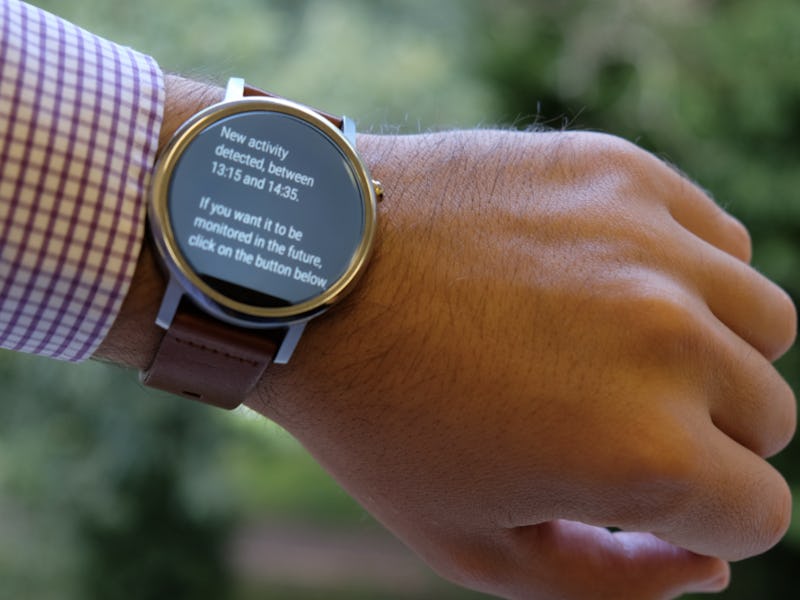Smartwatches Could Soon Track Your Every Move, Thanks to New Research
This algorithm can help you stalk yourself.

Imagine a record of your entire day; when you sit, stand, even when you brush your teeth. Sounds unnecessary perhaps, but scientists at the University of Sussex have invented an algorithm for your smartwatch that uses machine learning to keep track of your every move.
The researchers say that such a technology could be used in healthcare scenarios or for gathering data for consumer research.
Smartwatches are engineered to recognize a number of specific activities, but they have to be programmed into the technology. This new algorithm takes that functionality to the next level, enabling the technology to actually detect activities as they’re happening.
“Here we present a new machine-learning approach that detects new human activities as they happen in real time, and which outperforms competing approaches,” says Dr. Hristijan Gjoreski of the University of Sussex.
Traditionally, he says, a smartwatch picks up on bursts of activity and then deduces what a person is up to. So, continuous steps imply a walk, but if a person stops momentarily, and then begins again, the technology clocks that as two separate walks as opposed to one that includes a short pause.
This new algorithm will track activity continuously, so it will be able to detect the nuances of transitions from one activity to the next, as well as track the activity itself. With an interrupted walk — to follow that example — the algorithm’s machine learning would allow it to assume that a walk could continue following short pauses, and it would therefor hold onto data while it waits to determine if the walk will in fact keep going.
Dr. Daniel Roggen, head of the Sensor Research Technology Group at the University of Sussex, will speak about the technology on September 6 at the British Science Festival’s event, “In the era of wearable technologies.”
“Future smartwatches will be able to better analyze and understand our activities by automatically discovering when we engage in some new type of activity,” Roggen says. “This new method for activity discovery paints a far richer, more accurate, picture of daily human life.”
Of course, any product that can gather data on your entire day could have consequences for individual privacy; imagine helicopter parents forcing kids to wear a smartwatch with this technology, or employers having a new way to monitor productivity. It sounds pretty grim. When applied to research, however, this algorithm could be helpful for monitoring the daily behaviour of individuals and aid in diagnoses, or it could be used to help compile data for studies.
Research on the algorithm will be published at the International Symposium on Wearable Computers, which runs from September 11 to 15 in Maui.